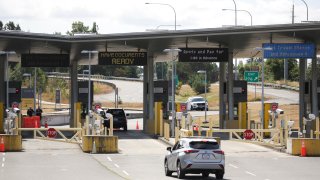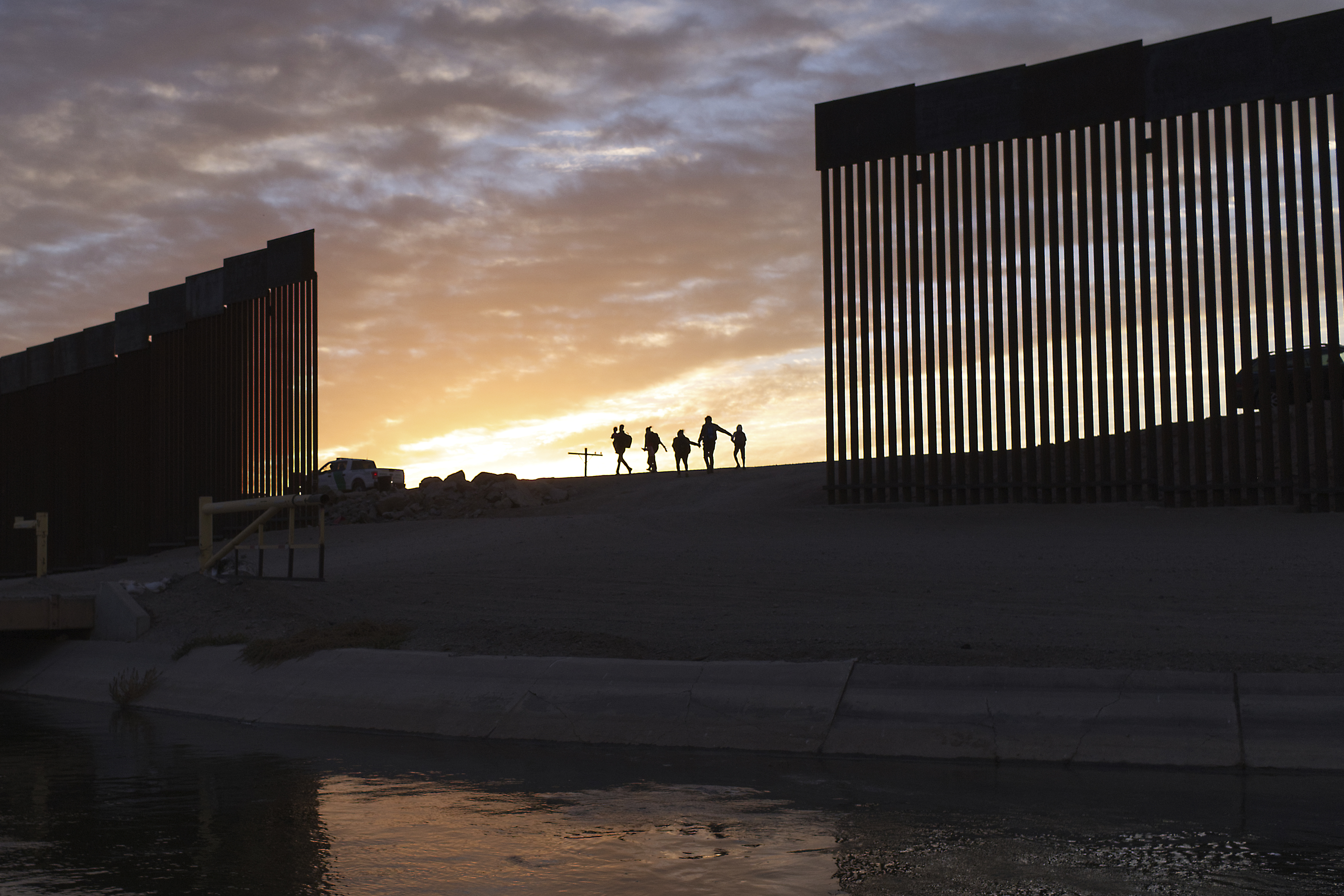
The U.S. will reopen its land borders to nonessential travel next month, ending a 19-month freeze due to the COVID-19 pandemic as the country moves to require all international visitors to be vaccinated against the coronavirus.
Vehicle, rail and ferry travel between the U.S. and Canada and Mexico has been largely restricted to essential travel, such as trade, since the earliest days of the pandemic. The new rules, to be announced Wednesday, will allow fully vaccinated foreign nationals to enter the U.S. regardless of the reason for travel starting in early November, when a similar easing of restrictions is set to kick in for air travel into the country. By mid-January, even essential travelers seeking to enter the U.S., like truck drivers, will need to be fully vaccinated.
Secretary of Homeland Security Alejandro N. Mayorkas announced the changes in a release late Tuesday. Senior administration officials had also previewed details of the new policy to the Associated Press on the condition of anonymity to speak ahead of the formal announcement.
Several elected officials, including Senate Majority Leader Chuck Schumer and Rep. Brian Higgins of New York, released statements confirming and applauding the announcement.
Get top local stories in San Diego delivered to you every morning. >Sign up for NBC San Diego's News Headlines newsletter.
Both Mexico and Canada have pressed the U.S. for months to ease restrictions on travel that have separated families and curtailed leisure trips since the onset of the pandemic. The latest move follows last month's announcement that the U.S. will end country-based travel bans for air travel, and instead require vaccination for foreign nationals seeking to enter by plane.
Both policies will take effect in early November, the officials said. They did not specify a particular date.
The new rules only apply to legal entry to the U.S. Officials cautioned that those seeking to enter illegally will still be subject to expulsion under so-called Title 42 authority, first invoked by former President Donald Trump, that has drawn criticism from immigration advocates for swiftly removing migrants before they can seek asylum. One of the officials said the U.S. was continuing the policy because cramped conditions in border patrol facilities pose a COVID-19 threat.
According to the officials, travelers entering the U.S. by vehicle, rail and ferry will be asked about their vaccination status as part of the standard U.S. Customs and Border Protection admissions process. At officers' discretion, travelers will have their proof of vaccination verified in a secondary screening process.
Unlike air travel, for which proof of a negative COVID-19 test is required before boarding a flight to enter the U.S., no testing will be required to enter the U.S. by land or sea, provided the travelers meet the vaccination requirement.
According to the Centers for Disease Control and Prevention, the U.S. will accept travelers who have been fully vaccinated with any of the vaccines approved for emergency use by the World Health Organization, not just those in use in the U.S. That means that the AstraZeneca vaccine, widely used in Canada, will be accepted.
More US Border Coverage
Officials said the CDC was still working to formalize procedures for admitting those who received doses of two different vaccines, as was fairly common in Canada.
The delay in the vaccination requirement for essential cross-border travel is meant to provide truck drivers and others with additional time to get a shot and minimize potential economic disruption from the vaccination mandate, officials said.
All told, the new procedures move toward a policy based on the risk profiles of individuals, rather than less targeted country-based bans.
The vaccination requirement for foreign nationals comes as the White House has moved to impose sweeping vaccination-or-testing requirements affecting as many as 100 million people in the U.S. in an effort to encourage holdouts to get shots.
On Tuesday, the U.S. Department of Labor completed the initial draft of an emergency regulation that will require employers of 100 workers or more to demand their employees be vaccinated against COVID-19 or tested weekly. The Office of Management and Budget is now reviewing the order before its implementation.
Mexico has not put in place any COVID-19 entry procedures for travelers. Canada allows entry of fully-vaccinated individuals with proof of vaccination against COVID-19 as well as proof of a negative test conducted within 72 hours of entry to the country.



